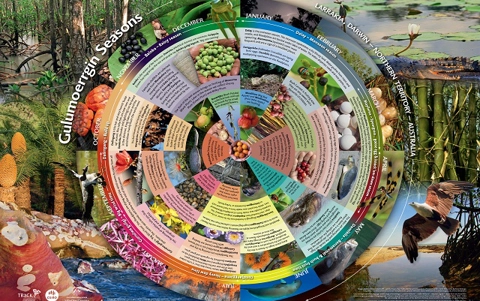Seven seasons
In this lesson sequence students investigate the CSIRO indigenous seasons calendars and produce a searchable database that will capture data using two data sources.
Additional details
| Year band(s) | 9-10 |
|---|---|
| Content type | Lesson ideas |
| Format | Web page |
| Core and overarching concepts | Data acquisition, Data interpretation, Impact and interactions, Specification (decomposing problems) |
| Australian Curriculum Digital Technologies code(s) |
AC9TDI10P04
Define and decompose real-world problems with design criteria and by interviewing stakeholders to create user stories |
| Keywords | Environment, Seasons, Indigenous seasons, Database, Data manipulation, Functional requirements, User experience, User interface, Functional specifications |
| Integrated, cross-curriculum, special needs | Aboriginal and Torres Strait Islander Histories and Cultures, Critical and creative thinking |
| Organisation | ESA |
| Copyright | Creative Commons Attribution 4.0, unless otherwise indicated. |
Related resources
-
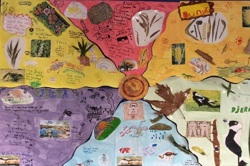
Classroom ideas F-10: Aboriginal and Torres Strait Islander connections to Digital Technologies
This resource provides examples of ways Aboriginal and Torres Strait Islander Histories and Cultures can be integrated into Digital Technologies. Examples include 'classification and sorting data' and 'designing solutions'.
-

A spreadsheet's secret weapon
In this lesson sequence, students learn to use pivot tables which have been described as the most powerful tool within spreadsheets.
-
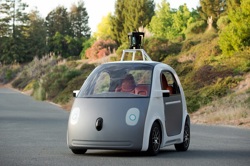
AI ethics - What's possible, probable and preferred?
The development and ubiquity of Artificial Intelligence raise a number of social and ethical matters that students can explore in the Digital Technologies classroom.
-

Seeing the wood for the trees
In this lesson sequence students summarise data using advanced filtering and grouping techniques, for example pivot tables in spreadsheets and aggregation functions in databases.
-
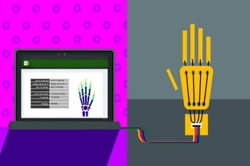
Building Machines That Emulate Humans
Students build robotic models from cardboard and straws to understand the anatomy and biomechanics of the human hand. Then, they conduct trials visualizing data in Excel to generate new ideas for improving it’s performance.
-

Level Up: Game design
This unit of work is intended to teach years 9–10 students basic programming, using general purpose programming language.
-
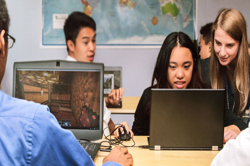
Minecraft Lesson Plans
Find Minecraft lessons spanning primary and secondary school for use with your students.
-

Systems Thinking and AI applications
This lesson takes a systems thinking approach to understanding the place of artificial intelligence (AI) as a component within solutions to real world problems, such as predicting bushfire hotspots, spotting and monitoring animals in the wild, automated horticulture and agriculture, and early detection of medical issues.
